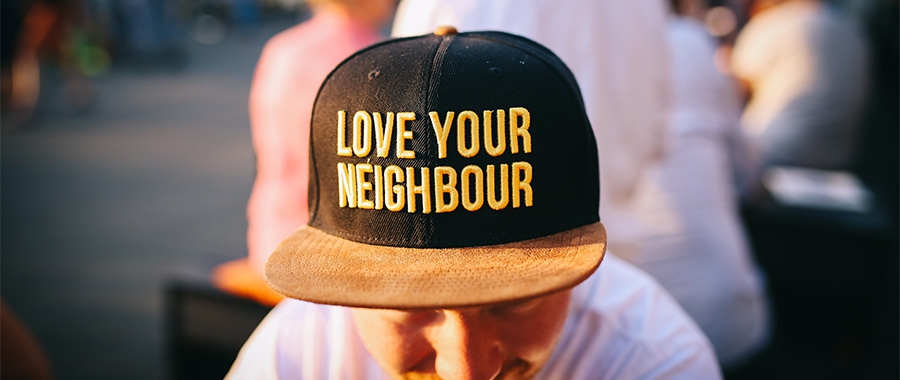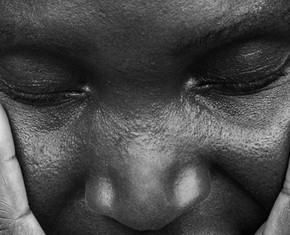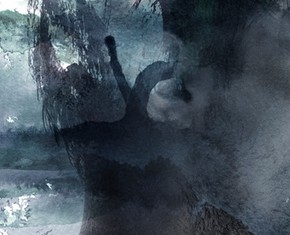The views expressed in our content reflect individual perspectives and do not represent the authoritative views of the Baha'i Faith.
Since my teen years, I have contemplated prejudices of many kinds: racism, sexism, nationalism, classism, gender discrimination, and religious discrimination—all obstacles to justice and empowerment for individuals and the collective. Now, as an adult, I am a firm believer in the oneness of humankind- but I wasn’t always so optimistic.
This journey to eradicate from the mind and spirit all prejudices, racial or otherwise, started when I was a teenager. During a high school recess, I had a conversation with a classmate about his belief systems, one of which was embracing the oneness of humanity.
Born in Mauritius to a society of people who were Indian, black, white, Hindu, Muslim, and Christian, I understood well the walls of division that existed among these groups. Because I came from the lowest caste of the Hindu religious system, I was also well aware of the small number of privileges I was entitled to due to my status at birth. Hard work, education, and determination—all hallmarks in the search for a better life—were undermined by the mere fact that I was considered part of a subclass of society.
During that fateful recess, I challenged my classmate, a believer in the Baha’i Faith, by saying that prejudices were impossible to eliminate from human experience and his religion’s idea too far-fetched to become a reality. As an argument, I pointed out to him that the social structure in my small Indian Ocean island was laced with systemic racism. In a fierce exchange of points of view, I expressed that breaking all the religious and social barriers from human consciousness to the point that one feels in harmony with everyone else regardless of one’s color or background was unachievable.
Would the whites from Mauritius, or any other parts of the world, accept a brown person like myself as their brother? Would the Indian or Chinese people treat the Africans like their own? My classmate emphasized that the true spirit of oneness is not just an intellectual exercise. Rather, it stems from an emotional stance where one feels every human being on this planet is a member of a global family. He further explained that, from a spiritual perspective, we are all created with the same spirit of the Creator:
All men are of one family; the crown of humanity rests on the head of every human being. In the eyes of the Creator all His children are equal; His goodness is poured forth on all. He does not favour this nation nor that nation, all alike are His creatures. This being so, why should we make divisions, separating one race from another? Why should we create barriers of superstition and tradition bringing discord and hatred among the people? – Abdu’l-Baha, Paris Talks, p. 139.
At that time, none of it made any sense to me. I ignored him. The white folks in Europe would never wholeheartedly accept brown people. Even within the same caste or ethnic group, one was discriminated against for being darker in color, like me. At the time I didn’t know that my classmate’s religion, the Baha’i Faith, actually had writings specifically addressed to white people about their responsibility when it comes to the oneness of humanity:
Let the white make a supreme effort in their resolve to contribute their share to the solution of this problem, to abandon once for all their usually inherent and at times subconscious sense of superiority, to correct their tendency towards revealing a patronizing attitude towards the members of the other race, to persuade them through their intimate, spontaneous and informal association with them of the genuineness of their friendship and the sincerity of their intentions, and to master their impatience of any lack of responsiveness on the part of a people who have received, for so long a period, such grievous and slow-healing wounds. – Shoghi Effendi, The Advent of Divine Justice, p. 40.
In 1971, I arrived in Toronto after having traveled through twelve countries. I felt fortunate to have had the most amazing human experiences in all those foreign lands. During my travels, strangers came to my rescue on numerous occasions when despair and hopelessness were at their peak. Given my wonderful experiences, as I analyzed the methodology put forward by the Baha’i teachings, my once skeptical ideas of unification of the human race fell away and were replaced by optimism. Despite my poverty, youth, and many unrealized dreams, I still felt lucky to be in Canada, and I committed myself to racial harmony as a worthy goal.
Racism and other prejudices are barriers that keep humans divided, precipitate wars, pit one group against another, and justify robbing one group to help another. To take my life mission seriously, I acknowledged that the one person I can truly change is myself. Constantly I recalled the words of Abdu’l-Baha:
Now, under the banner of the oneness of humanity all people of all creeds should turn away from prejudice and become friends and believers in all the Prophets. – Abdu’l-Baha in London, p. 43.
But I learned that eradicating all racial and religious prejudices from my own mind and heart was not an easy task. In restructuring my belief system, I had to accept that everyone else belonged to the same human family—no less than my own parents, brothers, and sisters. In principle this sounds idealistic, but with time, laser-sharp focus, and perseverance, the idea takes root in one’s mind enough to become achievable.
I kept reminding myself of the progress made on our planet. For example, in 1900, the idea that humans would one day walk on the moon, have heart transplants, or travel from London to New York in mere hours would have sounded unimaginable. Not only have we achieved these three goals, but also thousands of other marvelous, previously impossible accomplishments. So, we can achieve the oneness of humanity. It will take time and effort, but because we can imagine it, we can accomplish it.
With the passage of time, I witnessed the face of Canada changing. Immigrants from Asia, Africa, and Latin America came here instead of to Europe or the USA. Throughout all my human interactions, I analyzed whether my behavior was prejudicial in any way. Truthfully, my biases, ingrained in me during my formative years in Mauritius, often surfaced.
As I work on eliminating personal prejudices, say racial or religious—two of the most difficult ones for me—I discover in me other prejudices towards the physically challenged, the poor, the rich, the educated, or the uneducated. In my quest to eradicate my prejudices, the freedom I enjoyed from refusing to look down upon anyone because of their outward appearance or their perceived station in life kept me going.
As time passed, my fortunes in Canada increased in education, job status, and material assets. It would have been easy to become arrogant, but I always reminded myself of my humble beginnings—and that all my good fortune could suddenly disappear. My approach: to treat everyone with respect and to view each person as a noble being.
Lately, there has been a lot of talk about racism and immigrants fitting in, about political campaigns, police relations, and so on. We must find solutions to fix racial problems, and the Baha’i teachings offer solutions worthy of consideration. In the Advent of Divine Justice, Shoghi Effendi provides the American Baha’is with advice on how to dismantle racism that is definitely applicable across the border here in Canada:
A tremendous effort is required by both races if their outlook, their manners, and conduct are to reflect, in this darkened age, the spirit and teachings of the Faith of Bahá’u’lláh. Casting away once and for all the fallacious doctrine of racial superiority, with all its attendant evils, confusion, and miseries, and welcoming and encouraging the intermixture of races, and tearing down the barriers that now divide them, they should each endeavor, day and night, to fulfill their particular responsibilities in the common task which so urgently faces them. Let them, while each is attempting to contribute its share to the solution of this perplexing problem, call to mind the warnings of Abdu’l-Baha, and visualize, while there is yet time, the dire consequences that must follow if this challenging and unhappy situation that faces the entire American nation is not definitely remedied. – Shoghi Effendi, The Advent of Divine Justice, pp. 39-40.
After all, racial harmony is our collective destiny. Canada, as a young country without the burden of entrenched traditions and long history, is in a unique position to show the world how this noble goal can be achieved.
















Comments
Sign in or create an account
Continue with Googleor